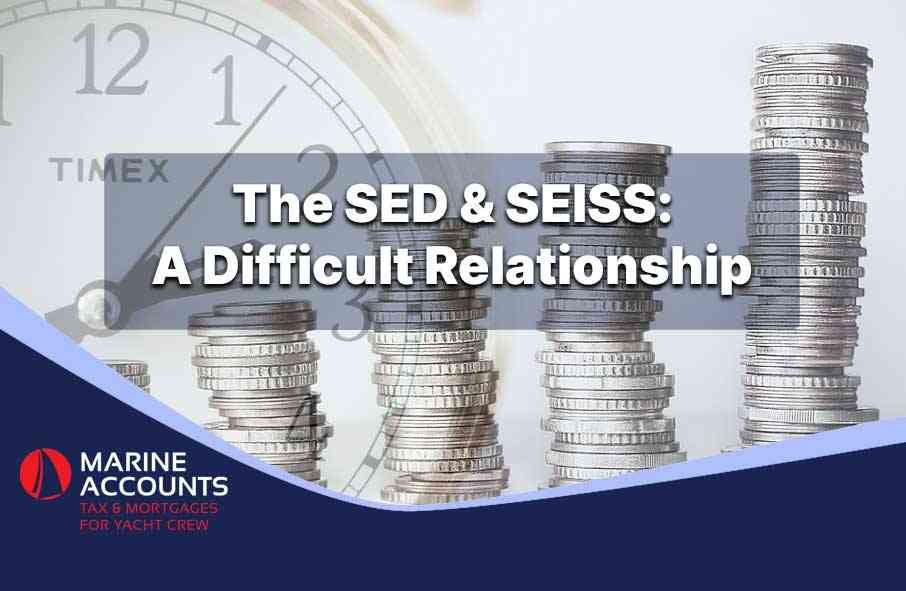The SED & SEISS: A Difficult Relationship
- Authors
-
-

- Name
- Patrick Maflin
-

When the Covid pandemic hit back in March 2020 and strict restrictions were imposed, many businesses and individuals saw a sudden and devastating impact on income, due to varying levels of government enforced lockdowns.
The UK government quickly rushed through a grant scheme to help those most in need.
They have since paid over more than £25.2 billion to 2.9 million self employed individuals, whose businesses were directly affected by coronavirus, in the form of the Self Employment Income Support Scheme (SEISS) Grant.
HMRC has now issued new guidance for everyone who has received a payment, and warns that some or all of it may need to be paid back - or you may face a penalty.
Read on to find out how this may affect you by clicking a chapter link below.
Chapters
What the Guidance Says
The guidance states that you must tell HMRC if, when you made the claim, you were not eligible for the grant.
For example:
- for the first or second grant, your business was not adversely affected.
- for the third, fourth or fifth grant, your business had not been impacted by reduced activity, capacity or demand or inability to trade in the relevant periods.
- you did not intend to continue to trade.
- you have incorporated your business.
When to Tell HMRC
 Image source: Wikipedia.org
Image source: Wikipedia.orgYou must also tell HMRC if you:
- received more than HMRC said you were entitled to.
- amended any of your tax returns on or after March 3, 2021 in a way which means you’re no longer eligible or are entitled to a lower fourth or fifth grant than you received.
- made a mistake reporting your turnover in your claim for the fifth grant which means you are entitled to a lower grant than you received.
- have received a letter from HMRC that says you need to pay back some or all of a grant.
Further information on this, can be found by following this link.
How This Affects Seafarers
Due to the sometimes complex nature of a seafarers employment, many were able to claim the SEISS grants, as self employment entries had previously been included on previous tax years self assessments.
This has since led to some confusion regarding the eligibility of the grants and if they are now due to be paid back to HMRC.
HMRC clearly state that, in order to be eligible to claim the Seafarers Earnings Deduction, the individual must be an employee with a contract in place.
However, there are circumstances when duties undertaken under the umbrella of self employment may be considered, depending on how the nature of the employment is managed.
Classifying Employment
According the HMRC, the following tests can be applied to determine how the employment is classified.
An individual is considered Self Employed if:
- they’re in business for themselves, are responsible for the success or failure of their business and can make a loss or a profit.
- they can decide what work they do and when, where or how to do it.
- they can hire someone else to do the work.
- they’re responsible for fixing any unsatisfactory work in their own time.
- their employer agrees a fixed price for their work - it doesn’t depend on how long the job takes to finish.
- they use their own money to buy business assets, cover running costs, and provide tools and equipment for their work.
- they can work for more than one client.
If the above apply to your working situation, you will not be eligible to claim the SED against your income.
The grants were issued to support self-employed individuals who’s duties and therefore income, were severely affected by the Covid crisis.
Due to the specific criteria laid out by HMRC, this cannot be claimed if you’re a contracted employee and applying the Seafarers Earnings Deduction to your income from yachting.
The SEISS grants must be declared via your self assessment, then it will be down to HMRC’s discretion as to how to proceed.
Contact Us
If you have concerns about your yachting income and tax status, we would like to hear from you.
Simply get in touch with us today or let us know your thoughts in the comments section below.
Disclaimer: Any advice in this publication is not intended or written by Marine Accounts to be used by a client or entity for the purpose of (i) avoiding penalties that may be imposed on any taxpayer or (ii) promoting, marketing or recommending to another party matters herein.


